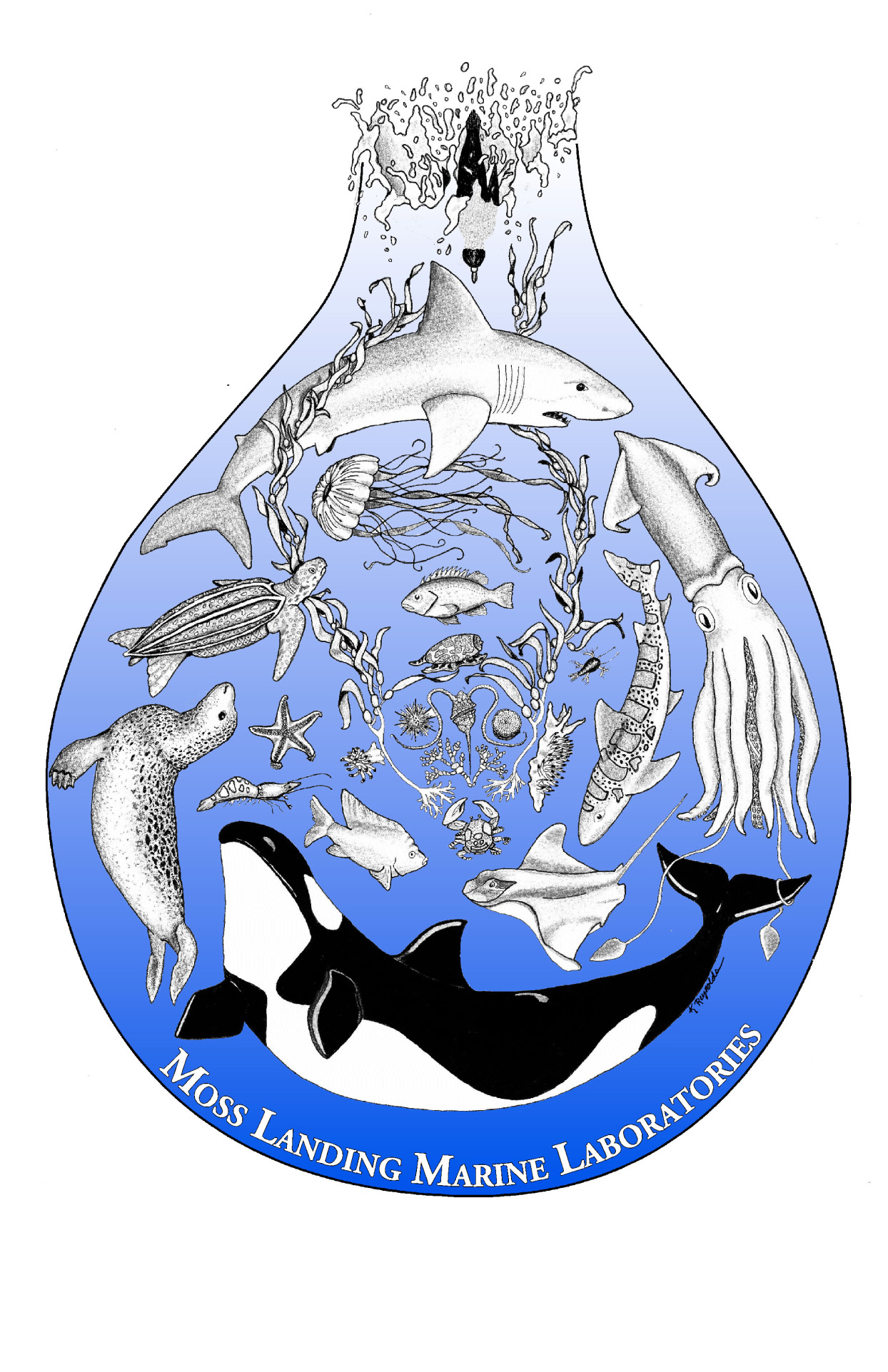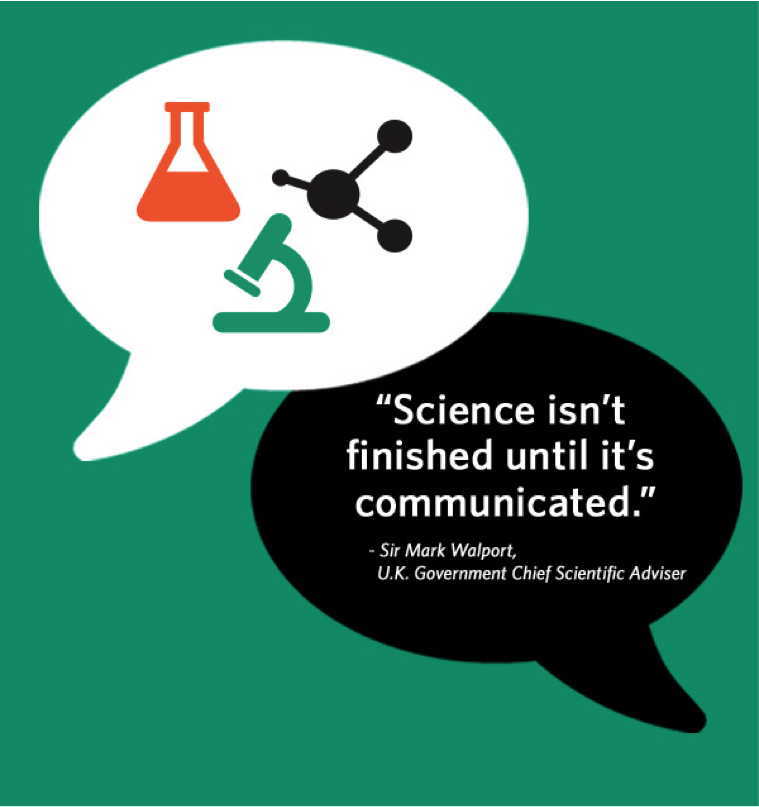By Amanda Heidt, Invertebrate Zoology Lab
This year we are celebrating The Drop-In's ten-year anniversary! That’s ten years of working hard to give our readers a truthful account of what it means to be a student of marine science conducting our work here in the Monterey Bay.

There are some exciting posts lined up in the coming weeks, but we wanted to take a moment to reflect on the blog’s purpose and the audience it supports.
Erin Loury was one of the co-founders, and she paused in packing for her trip to southeast Asia to chat with me about what motivated her to start The Drop-In.
But first, a bit about her: Erin was originally a masters student in the Ichthyology lab, but she knew right away that her ultimate goal was to attend UCSC’s Science Communication program, a one-year masters degree she describes as “journalism bootcamp for scientists.” As part of her program, she held paid internships at the Monterey County Herald, MBARI, and Science News, the online news arm of Science Magazine.
As she prepared to graduate, she admitted to feeling anxious over her desire to pursue communication without totally foregoing her scientific background. She didn’t want to just be telling the stories of other people, she says, but actively contributing stories of her own.
Erin has now been working for FishBio – a fisheries and environmental consulting company – as their Communications Director for six years. She is able to travel as a fisheries scientist to help with their work abroad and to draft their scientific publications. But in addition, she manages their website, blog, newsletter, and social media channels, prepares press materials, and assists with video production and community outreach.
All of which began with a desire to share stories and a blog that continues today. Below you can read our discussion regarding the blog’s formation and the importance of educational outreach efforts. It has been edited mildly for clarity and length.
What was your motivation to start the blog?
The first was I wanted to create a resource that I wish I’d had when I was a student trying to decide if I should go into marine biology. There are so many young kids that want to be marine biologists, but they don't really have any sense of what that would look like, their families don’t have any sense of what that would look like. They think of being dolphin trainers. But what can you do that kind of degree?

The second aspect was wanting to know specifically what it was like to be a graduate student at Moss Landing. I was trying to encourage the students here to tap into that storytelling and creative side and just being able to share those amazing experiences. Because even just talking to my classmates and my friends, I was hearing about all these incredible trips that people were making into the field and these encounters that they were having with wildlife. It's just such a unique opportunity that we have as marine scientists.
Another important role that The Drop-In can play is helping people understand the scientific process. One of the main things you learn in communication is “show people, don't tell them.” Immerse people in the world of science and help them understand what it means and how challenging it is. It's not just, “Oh, you answered this question, you know everything now.” There's always more questions or sometimes it's hard to answer the question you thought you'd answer. So being able to show people the nuance and the challenge of science as a process is also important.
Where there any challenges to getting the blog running, and if so how did you address them?
In the beginning it was definitely a matter of identity. I think over the years we kind of pared it down to the essence: the students at Moss Landing and sharing their stories, which is ultimately the primary goal of the blog.
But around that time in 2008, there was this growing question of “should scientists be held responsible for doing science communication?” Should they be encouraged or is that solely something that journalists do? And so I think we were starting to see some movement on this idea that we could actually train scientists to be communicators and that some of them are actually really good at it and you don't just have to rely on the journalists to get it right. If you could give young scientists tools to communicate, you’d be turning out better science leaders in the future.

I think there was a concern about potential challenges in the beginning because this was kind of a new thing and I think especially among some of the faculty they just didn't have a clear idea of what it would look like. It was a time when not everyone just automatically knew what a blog was.
One of the things that people were concerned about was comments and the idea of the Internet. What if we got negative feedback and how would we deal with that? And then another was just wanting to make sure we were scientifically accurate. So for a time we had a faculty adviser looking things over, but in the end I don't think we really needed to run anything by her. Once they saw that it was really just us trying to share these stories, that it was promotion for the lab, outreach for the lab, we didn't have any real challenges with that.
What is the value of science communication, and why should scientists care to do it?
The systems that we study as marine scientists are profoundly affected by other people, whether we like it or not. So it's in our interest if we'd like to continue to study the animals, the plants, and the ecosystems that we care about as scientists to be able to get the support and the funding to do that. It's in our best interest to be able to share with other people why we care about these places and why they should care about them and why they're important. I think especially now, when there's so much misunderstanding and a lack of trust of science, that communication can show scientists as people.
That's one of the things that I've learned from the communication world: that people care about other people, you know, they care about the environment as well, but sometimes it's through the eyes or the journey of another person that they come to learn and care about something that maybe they didn't naturally have any interest in.
Amanda Kahn was another of the co-founders, and she is a great example. She studies sponges now. They’re a total snooze-fest to most people. But she is just so animated and excited, she can get just about anyone to care about sponges because she cares about them so much.
What would you suggest to people who want to get some experience in science communication?
Social media is a great tool that you could use to take some baby steps into science communication. I think especially if you're out in the field, Instagram is a really great tool for taking pictures and infusing a little bit of science into your captions. Same for your Facebook posts.

And if you aren't so much into the tech side of things, finding any opportunities for outreach or volunteering where you're interacting with students or with the public, things like Open House. I love working with kids because they're always really excited and very forgiving if you mess up! You have a fun audience to test out your science soundbites on and to help test engaging ways to talk about your science.
Every time you tell a non scientist about the work that you're doing in ways that they can understand, you're doing science communication.
Any parting words of wisdom?
I'm just really excited to see that the blog has been able to continue over all of these years.
I know it can be time consuming when people are so busy in grad school and doing a thesis, but for me having a creative outlet was something that I really valued. Just to feel like you're using a different part of your brain. It can be a fun way, especially if you're dealing with some of the challenges of doing science, to be able to take a step back and reconnect with what drew you to science in the first place. That sort of wonder, that aspect of discovery and learning about nature. I would definitely encourage people to get involved with the blog and use it to test out how they could tell their stories and raise awareness about the amazing work that they're doing.
It was so great to see that Erin was able to find a path that provided so much of what she had wanted going into her professional career.
Coming up, we are putting together a few posts to highlight some of the work our students did over the summer. The script gets flipped for graduate students, as summer is often a time of intense work when field data is collected for analysis in the fall. It is also a time when students participate in short-term fellowships and internships with other agencies.
Let us know, what does science communication mean to you? As a scientist, are you making efforts to share your work with the wider community? As a reader, what would you like to see from us here at The Drop-In?

